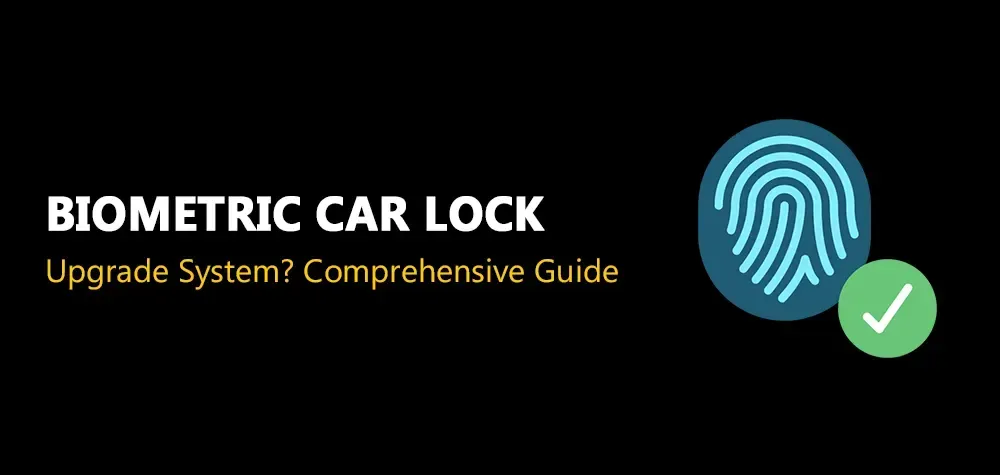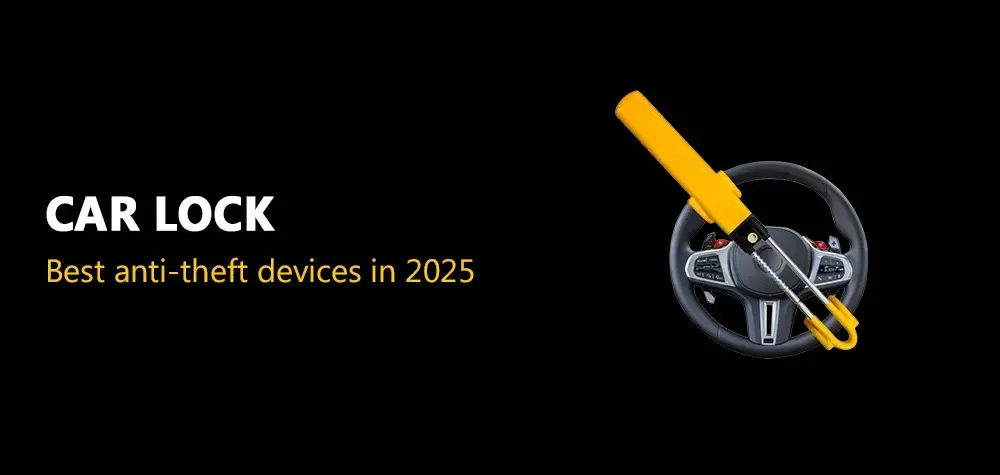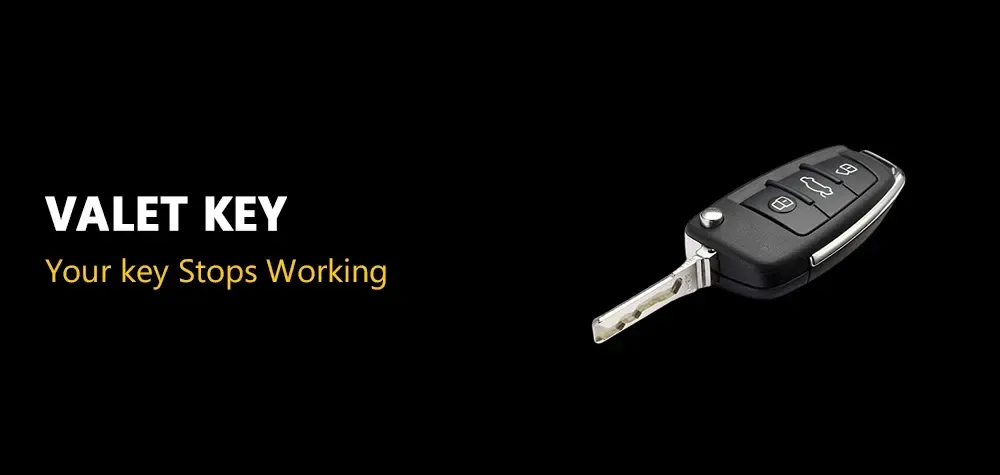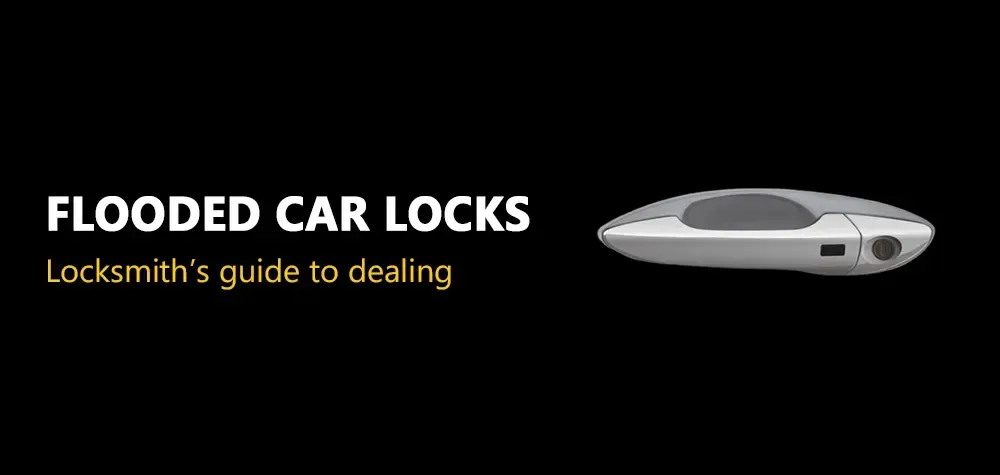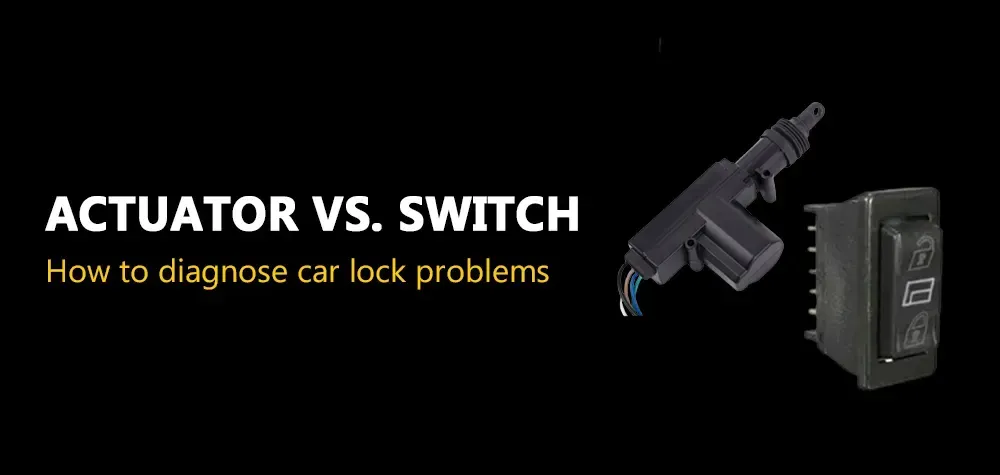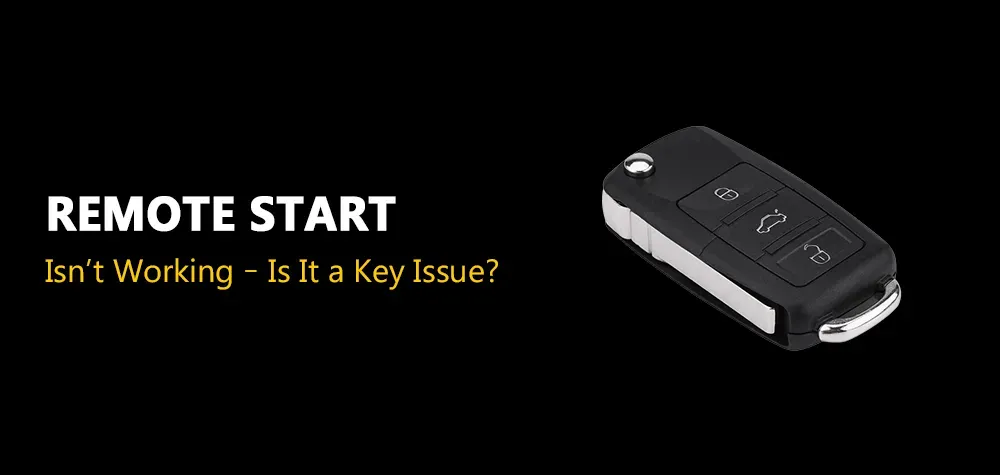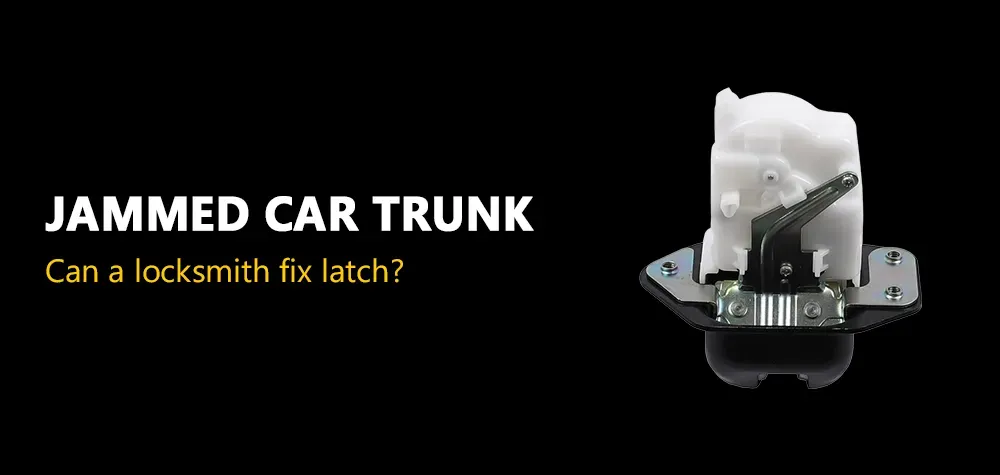The Ultimate Guide to the Best Small Home Safes to Own in 2024
In a world where the unpredictability of life can catch us off guard, securing our personal valuables has never been more essential. Whether it's important documents, family heirlooms, cash, or sentimental items, investing in a small home safe provides a reliable solution for protecting your cherished possessions. With technological advancements, today's small home safes offer robust security features, making them an indispensable addition to any household.
Why You Need a Small Home Safe in 2024
Protection Against Theft
One of the primary reasons to own a small home safe is to safeguard your valuables against theft. With break-ins occurring at an alarming rate, having a secure space for your most valuable items acts as a formidable barrier against intruders. Modern safes come equipped with various locking mechanisms—biometric fingerprint scanners, digital keypads, and traditional combination locks—making them incredibly difficult to breach.
Organized Storage
A small home safe not only protects but also organizes your important documents and valuables. Instead of scattering your prized possessions throughout your home, you can keep them all in one secure location. This organization is particularly beneficial in emergencies when you need to access your items quickly.
Peace of Mind
Perhaps the greatest benefit of owning a small home safe is the peace of mind it offers. Knowing your valuable possessions are securely locked away, protected from theft, fire, and water damage, allows you to focus on what truly matters in life.
Factors to Consider Before Buying a Small Home Safe
When purchasing a small home safe, consider several factors to ensure it meets your needs:
- Purpose: Determine what you’ll be storing—jewelry, cash, documents, or digital media. This will help you choose the right features.
- Size and Capacity: Assess the amount and type of items you plan to store.
- Security Features: Look for reliable locking mechanisms, anti-tamper features, and robust construction materials.
- Fire and Water Resistance: Ensure the safe offers protection against fire and water damage.
- Construction Material: Opt for heavy-duty steel for enhanced security.
- Price and Warranty: Balance features with budget and ensure a good warranty for peace of mind.
Best Small Home Safes of 2024
1. Safewell E9300E Electronic Safe
- Dimensions: 9.8″H x 13.78″W x 9.8″D
- Lock Type: Electronic
- Capacity: 14 liters
- Material: Alloy steel
Pros:
- User-friendly electronic keypad
- Override keys for battery emergencies
- Compact and discreet design
- Affordable price point
Cons:
- Lacks water resistance
- Limited alarm features
Purpose:
Ideal for securing small valuables like jewelry and important documents.
Features:
The Safewell E9300E is designed for ease of use, featuring a straightforward electronic keypad for programming your own code. It also includes override keys, ensuring access even if the batteries die. This safe is perfect for placing in a discreet location, making it hard for intruders to notice.
Why Own It in 2024:
With its combination of affordability and essential features, the E9300E is an excellent choice for first-time safe buyers who want to protect their valuables without breaking the bank.
2. SentrySafe SFW123GDC Fireproof Safe
- Dimensions: 13.8″H x 14.3″W x 16.3″D
- Lock Type: Digital keypad
- Capacity: 1.23 cubic feet
- Material: Steel
Pros:
- Fire and water-resistant
- Large internal capacity
- Digital keypad for easy access
Cons:
- Heavier than other options
- Slightly higher price point
Purpose:
Perfect for storing important documents and electronics that need fire protection.
Features:
The SentrySafe SFW123GDC boasts a high fire rating, protecting contents for up to one hour at 1700°F. Its waterproof design ensures your items stay safe even in flood conditions. The digital keypad offers easy access while providing robust security.
Why Own It in 2024:
For those looking to protect vital documents and electronics from both theft and environmental damage, this safe provides exceptional peace of mind, making it a must-have for homes in flood-prone areas.
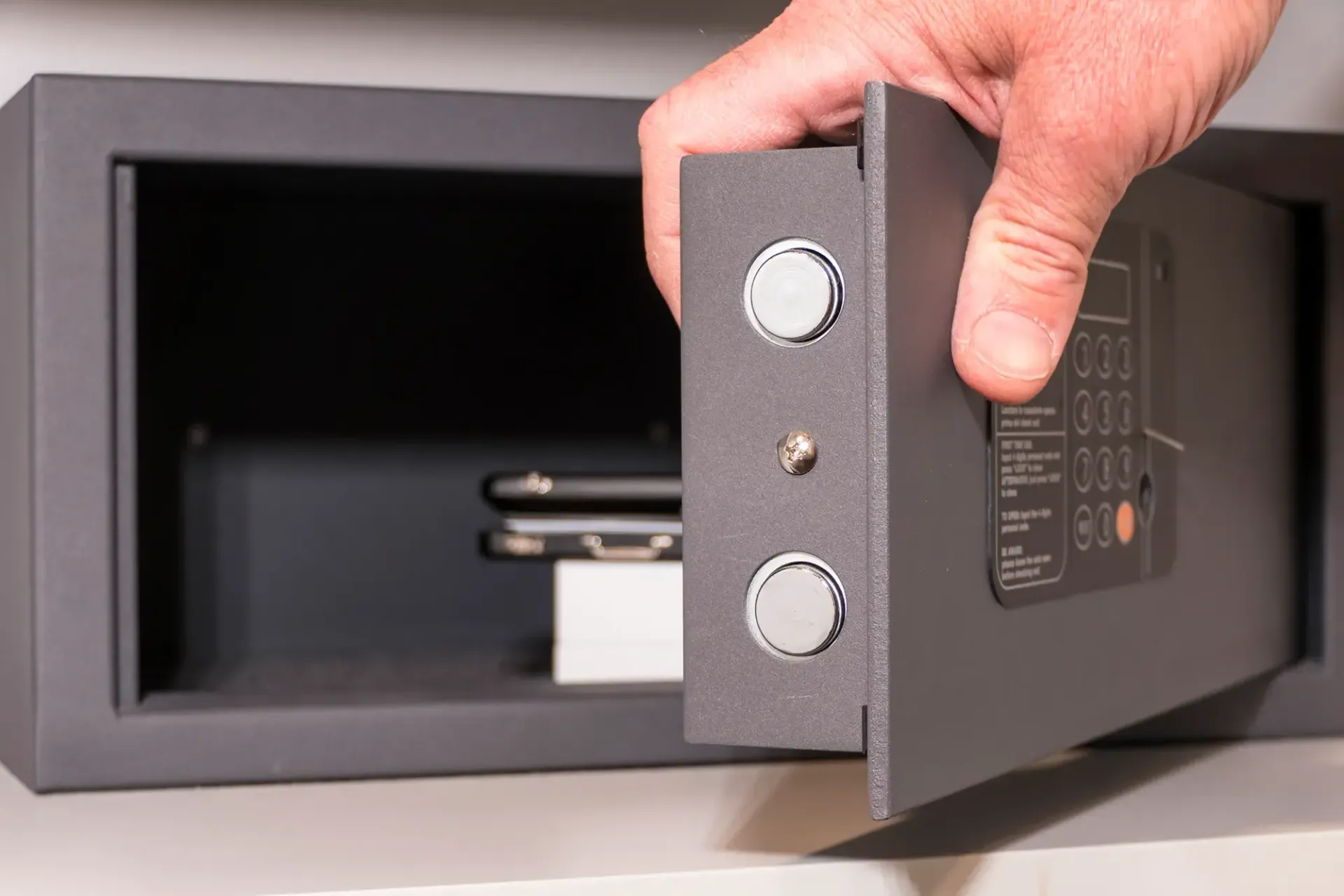
3. AmazonBasics Security Safe
- Dimensions: 13.8″H x 13.8″W x 13.8″D
- Lock Type: Electronic keypad
- Capacity: 0.5 cubic feet
- Material: Steel
Pros:
- Affordable
- Pre-drilled mounting holes for added security
- Easy-to-use electronic lock
Cons:
- Limited fire resistance
- Basic design with fewer features
Purpose:
A versatile option for cash, documents, and small valuables.
Features:
The AmazonBasics Security Safe is straightforward and functional, featuring a user-friendly electronic keypad. With pre-drilled mounting holes, it can be easily secured to the floor or wall for added security.
Why Own It in 2024:
This safe is perfect for budget-conscious consumers who need a reliable storage solution for everyday valuables. Its ease of use and affordability make it a popular choice among first-time buyers.
4. Tigerking Digital Safe
- Dimensions: 11.8″H x 15.8″W x 11.8″D
- Lock Type: Electronic with backup keys
- Capacity: 0.6 cubic feet
- Material: Steel
Pros:
- Solid steel construction for enhanced security
- Backup keys included
- User-friendly design
Cons:
- Slightly heavier
- Basic fire resistance features
Purpose:
Ideal for securing cash and jewelry.
Features:
The Tigerking Digital Safe features a robust electronic locking system complemented by backup keys for emergencies. Its solid steel construction offers peace of mind, making it a great choice for personal use.
Why Own It in 2024:
This safe is an excellent option for individuals seeking extra security without overspending. Its durable construction ensures your valuables are well protected.
5. Stack-On E-040-SB-E Elite Electronic Safe
- Dimensions: 9.5″H x 13.75″W x 12″D
- Lock Type: Electronic keypad
- Capacity: 0.5 cubic feet
- Material: Steel
Pros:
- Pry-resistant door
- Backup keys included
- Solid locking mechanism
Cons:
- Limited internal space
- Basic design features
Purpose:
Best for small valuables and personal items.
Features:
The Stack-On E-040-SB-E is designed with a pry-resistant door and an easy-to-use electronic keypad. Its compact size makes it perfect for securing small items while still providing robust protection.
Why Own It in 2024:
For anyone seeking a small, effective solution for securing valuables, this safe offers solid security features without overwhelming complexity. It's perfect for those new to safes.
Conclusion
Investing in a small home safe in 2024 is a wise decision for anyone looking to safeguard their valuables. Whether you're protecting important documents, jewelry, cash, or digital media, choosing the right safe involves considering security features, size, fire and water resistance, and ease of access. With various options available that balance affordability, durability, and advanced technology, you can confidently secure your most prized possessions.
By carefully evaluating your specific needs and selecting a high-quality, well-reviewed safe, you ensure peace of mind, knowing that your valuables are protected against theft, fire, and water damage. With the recommendations above, you’re well on your way to finding the perfect small home safe that fits your lifestyle and security needs.
Fireproof Safes vs. Burglary-Resistant Safes: Which is Right for You?
Call Us Any Time!
